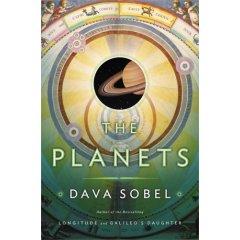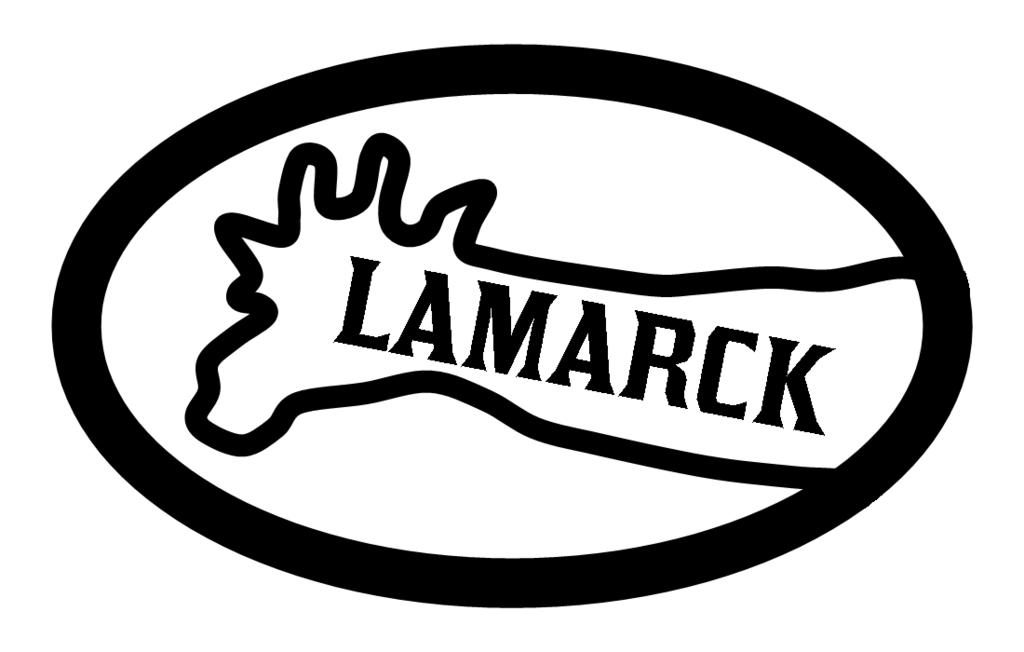

I may have solved the computer problems, finally. I took it down to one stick of RAM, and there were no problems, then added another and another, and still no problems. Even now with all the RAM back, I haven’t had any random memory access violations that close my programs. I think maybe having the smaller modules in the first slots was part of the problem, or maybe the removing and adding just cleaned some dust out of the contacts or somethings.
Even more good news, I found that one of the old hard drives actually does still work. So I did my first ever installation of Linux, which earned me lots of Computer skill points. First I tried doing the minimal installation of Debian, where you use a CD just big enough to set up network protocols so the rest can be downloaded. But the downloads were taking forever and occasionally having timeout issues, and the Gentoo CD was downloading at over 300 kB/s (and they have a slicker website), so I abandoned that and started over with Gentoo. As it turns out, Gentoo is for the slightly more advanced techie, and I just wasn’t up to the task. So I got the regular Debian CD, and finally managed to get all the way to having a GNOME desktop. As a surprise bonus, I was able to access the shared folder on my laptop through the Linux desktop, perhaps because I named the domain for that computer the same as the Windows workgroup (the the laptop happens to have the FAT file system). Of course, to switch between Linux and Windows I have to physically switch hard drives, and I couldn’t even figure out how to do something as simple as install Firefox in Linux, but all in good time.
I also installed the TI software and put the newest OS on my TI-89. I think my flash had become corrupted before, but now everything is in working order. As I was going through the programs to find the a periodic table, which I always like to keep handy on my calculator, even though I never really use it anymore, I found that there were a whole lot of different ones that had been released since the last time I was downloading calculator programs. So I gave most of the new ones a try in turn, but they were all downright awful compared to the one program I used to use, this one. So I installed it and was taking a look at the readme file, which indicated that the programmer was (at least as of the last update 5 years ago) still interested in adding to it, should the need arise. I sent him an email about how much I’ve enjoyed the program and suggested that he add elements 110 and 111, which have acquired permanent names and two-letter abbreviations since he wrote the program. And general physical information about the elements is much more available than it was then, so I pointed him to a website with some extra info that might be nice to have in his periodic table. It would be really awesome if he actually responds and updates that program, otherwise people will keep making crappy ones and no one new will discover his program.
Also, a few days ago I added a Flickr badge to the ragesoss and ragesossgeneral pages. Quite nice.
I thought I had all my computer problems solved, but on the new desktop, programs kept random crashing. iTunes and Firefox both would just shut down and bring up the error report dialogue at random moments. I think maybe the network problems I was having (before I upgraded the firmware on the router) may have corrupted some of the XP updates when I re-installed everything. So I formatted it again. We’ll see how this goes. For some reason I can’t get any of the 3 floppy drives I have to work. And I haven’t had any weird crashes yet, but each time I try to download Acrobat Reader, it says there is a checksum error and the download is corrupted.
Other than that, I should be pretty much up to speed by morning, and I have it all networked and print-shared and good to go.
I finally finished Mary Terrall’s marvelous “The Man Who Flattened the Earth,” a biography of Pierre-Louis Moreau de Maupertuis. Anyone who has read even a small part of that book could verify how bad the old wikipedia entry was. I’ve taken the liberty of making some improvements, although it could still use some work.
Meanwhile, school starts up for me next Wednesday. I’m still not totally sure what classes I’ll be taking, but the frontrunners are:
I’d like to take the top three, but I might have to take one of the last two to fulfill a research requirement. Actually, if I could manage all of the top 4 that would be great. If I could audit John Warner’s class and take all the others but the last that might work.
Also on the radar for sitting in but not actually enrolling for credit are:
I’ve had this new Acer laptop for about a week now, and I’m quite happy with it. I’ve streamlined the startup programs and eliminated as many extraneous features as possible, and now it starts up fully in about 20 seconds and shuts down in about 8 seconds… pretty good for a low-end laptop (at least compared to most of the computers I’ve owned in the past). Some of the software I found on this guide to freeware, particularly this startup program and this optimization program helped enormously.
Even better, our new desktop is formatting as I type. Faith’s dad sent us his second-best computer, but when it arrived a few days ago it wouldn’t start. I opened it up and monkeyed around with the connections, screwed in a free-flying video card and hard drive, disconnected and reconnected everything I could see, skimmed the motherboard manual, and checked out computer building tutorial. After all that, it still wouldn’t start. But today we went back for nearly the last load of stuff from the old apartment, including the broken computer (which I fortunately convinced Faith not to throw away). One switched out power supply and the addition of the RAM from the dead computer (and a fan, too), and our 160 GB storing, DVD burning, 1 Gig of RAM having, free computer is up and running.
As an added bonus, on the way back from the Super Walmart (the first one we’ve seen in CT, and it’s relatively close: sweet!) we stopped by a delightful Salvation Army store where, in addition to a stunning pearl-snap shirt, I got an IBM Model M keyboard (1391401). I had just read briefly about how some people like the old heavy-duty clicky keyboards, so I thought at $3.50 it was worth a shot. It totally was, and now that the desktop is running, I’ve verified that in addition to sounding great and feeling great, it works. And it’s only three years younger than me.
With all the free time before classes start, I’ve discovered a few other things on the web that I’ve gotten something out of. First del.icio.us, which led me to the above freeware site from its “popular” page. Second Flickr, which would have been much more helpful before the first computer crash that cost us all our digital photos. And finally, Amazon’s A9 search engine, which is roughly equivalent to a combination of Google, Google Search History, and a blog search engine… the real upside is that you get a 1.57% (pi/2) discount at Amazon if you use it regularly for a while, and it automatically uses your Amazon info so there’s no registration involved. I’m just using it a little each day (not actually switching to it as my default search page), but it uses Google results and has some other decent features without being too ad-heavy, so it’s seems worth it for the discount. The only real downside is that it’s fairly slow.
And with all this practice on half-broken hardware and new and interesting software, I’ve totally leveled-up my Computers skill.
 I finally finished writing my review of Dava Sobel‘s forthcoming The Planets. I had about half a review written before my computer crashed, but of course it’s better the second time anyway. Here is the only other pre-release review I’ve found so far; apparently Dr. Bortz is less impressed than me.
I finally finished writing my review of Dava Sobel‘s forthcoming The Planets. I had about half a review written before my computer crashed, but of course it’s better the second time anyway. Here is the only other pre-release review I’ve found so far; apparently Dr. Bortz is less impressed than me.
Here’s mine:
Dava Sobel‘s newest offering deviates from the historical path of her previous work, but the stellar prose that remains in The Planets will inevitably pull in any who wander too close. This book touches on the social, religious and intellectual aspects of the solar system from antiquity to January 2005, but cannot properly be called history; Sobel simply stuffs the most interesting stories and facts about each celestial body into a slim 231 pages (plus a glossary and a brief appendix of factual details). Of course, interesting stories and facts about the planets could easily fill a book many, many times as long. The beauty of The Planets is that Sobel (who has clearly culled from an enormous pool of potential content) selected only most fascinating and unusual to include. Few but historians of planetary astronomy and the most dedicated trivia buffs are likely to be bored by too much they already know, even though nearly everything comes from published sources. And even if the contents are old news, Sobel’s packaging is a joy.
The Planets is organized into thematic chapters that, for the most part, read like separate essays. The introduction and conclusion give the context for Sobel’s longtime and continuing passion for the Planets; the former is not particularly riveting, but does not detract. The chapters—there are ten including the Sun and the Moon, with Uranus and Neptune sharing one—bear titles indicating the overarching theme of each, though each theme is stretched far enough to allow a feeling of continuity as the book proceeds outward from the Sun to the edge of the solar system.
Beginning appropriately with “Genesis,” Sobel’s Sun chapter is perhaps the least novel (as well as the shortest). Sobel gives an overview of basic facts and trivia about the Sun, while beginning and ending with invocations of creation and drawing a few parallels between the scientific and religious stories. Mercury’s “Mythology” has the easiest theme (mostly Greek, though it dabbles in other cultures), but Sobel makes it interesting by telling the scientific history of the planet through anecdotes of scientists applying the same mythological themes to their work. The integration of science and culture is even smoother in Venus’ chapter, simply themed “Beauty;” highlights include poetry on Venus by scientists and literary figures alike (and what sophisticated history of science is complete without a William Blake reference?). Our own pale blue dot offers a change of pace; Sobel tromps through a brief history of the developments of Earth’s “Geography,” dispelling a number of common historical myths in the process. “Lunacy” vaguely revolves around Moon superstitions but is mostly filled with interesting facts.
One of The Planets‘ best chapters is “Sci-Fi,” which is told entirely from the perspective of a 4.5 billion year old Martian rock that crashed into Antarctica sixteen million years ago. The rock tells its own story and that of Mars, explaining how its home planet has been the object of such fascination among Earth natives through science fiction. Jupiter has the honor—or shame, depending on one’s perspective—of bearing the theme of “Astrology.” Given it’s role in the careers of Galileo, Kepler and so many other early astronomers, historians of science should appreciate Sobel’s choice for the king of the planets, despite whatever offense contemporary astronomers may take. Saturn’s “Music of the Spheres” addresses the numerological aspects of the history of planetary astronomy, opening with a discussion of Gustav Holst and interspersed with other musical references. Uranus and Neptune share “Night Air,” which tells their stories of discoveries mostly through the eloquent correspondence of 19th-century American astronomer Maria Mitchell. “UFO” is nominally Pluto’s chapter, but as the name suggest, Pluto is odd planet (if it can even be considered one) out, more similar to other recently discovered Kuiper Belt objects than its traditional brethren. Discussion of such discoveries segues into the conclusion, which brings planetary astronomy up to the ongoing investigation of Saturn and its moon Titan.
General readers will take a lot from this book: a head full of scientific knowledge about the planets, details and anecdotes about how that knowledge was produced, and an appreciation for their historical cultural significance as well. But the greatest gift Sobel grants the reader is a small piece of her enthusiasm; The Planets makes you want to, if not become an astronomer, at least do more reading on the subject.
[UPDATE: 10/3/05] Here are some other reveiws that have come out recently:
Sunday Times (UK)
Guardian Unlimited Books
We’re mostly moved in to the new apartment now… the TV and the speakers and hooked up, and most of my books are back on the bookshelves. We even moved the piano into the apartment by ourselves; I just backed the truck right up our grassy hill to the front door and sent the ramp into the living room.
We had to move the cats in a dog cage that had presumably been used by dogs (my friend Lloyd found it in his basement and gave it to us), and they were hissing and meowing for the entirety of the trip. When we arrived, I let them out for a bit, and they seemed OK… they went exploring the new apartment. But I had to put them back into the cage for about 20 minutes until we had the litter box set up, and they really resented that, especially Curie. She found this spot in a dark closet and didn’t leave voluntarily for about 24 hours. But now both of them are back to normal.
Even though this apartment is a little smaller, it is laid out much better and seems bigger. And, we have a garage of basically equal size to the apartment, plus a huge balcony. And there is a Super Walmart nearby, unlike New Haven, where all the nearby Walmarts closed at like 9 and had no food.
Here is Tesla just before the move, hopped up on catnip.

Reading: nothing
Watching: 24 Season 4, Kung Fu Hustle, Sin City
Listening: Weakerthans, Cake, 3 Doors Down
Well, the repaired computer didn’t last very long. Last night it froze, and hasn’t been able to get past the bios screen since. And since Faith had to return her laptop to the Physics Department today, we moved our computer buying schedule forward a bit… I have a new laptop.
I think the main problem with the other computer was the video card, which crashed increasingly often before the big death yesterday (though the computer would still run with software rendering). I’m going to try eventually to use what’s left and buy cheap parts to build a Linux computer.
We’ve started packing, and we checked out our new apartment today. It’s not the tree-shaded one we hoped, but it looks pretty good… they were working on it, so we didn’t go in. The drive seemed shorter now that I’ve done it a few times and don’t have to think about it as much. Meanwhile, we’ve been entertaining ourselves with the first 4 episodes of 24, season 4. Unfortunately, no more have downloaded so far.
We just finished watching Flatliners (for free on-demand), which I don’t think I had ever seen all the way through. It’s a somewhat better and much creepier movie than I thought it was. It’s not deep, but it pretends to be hard enough to make it scary and engrossing.
I’m not looking forward to changing all my registration information for the move.
Reading: The Planets, The Man Who Flattened the Earth
Watching: The Transporter, 24 Season 4, Flatliners
Listening: The Weakerthans
I finally got around to making the bumper sticker I’ve wanted for so long… the Lamarck Giraffe. Ideal for historians of science to declare themselves above the Creation/Evolution controversy. A stridently ambiguous statement if ever there was one.

Maybe I’ll buy a few to show off/publicize at the HSS meeting this year.
Buy it here, only $1 mark-up.